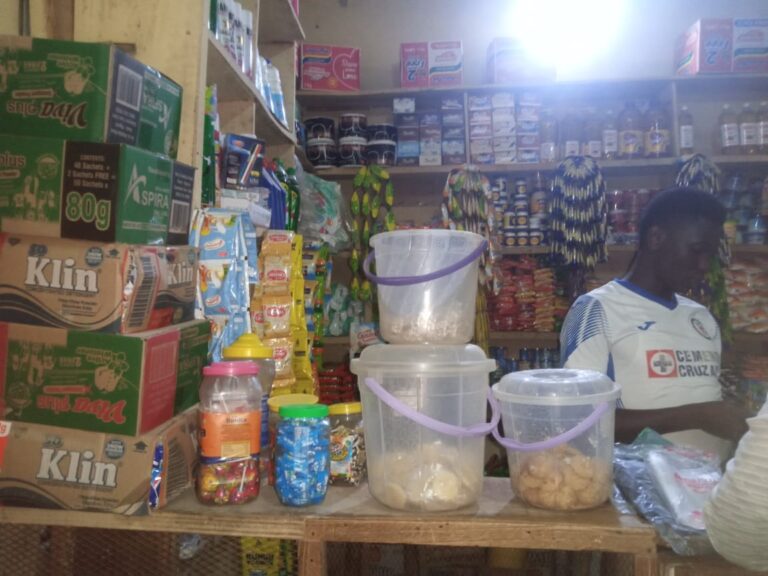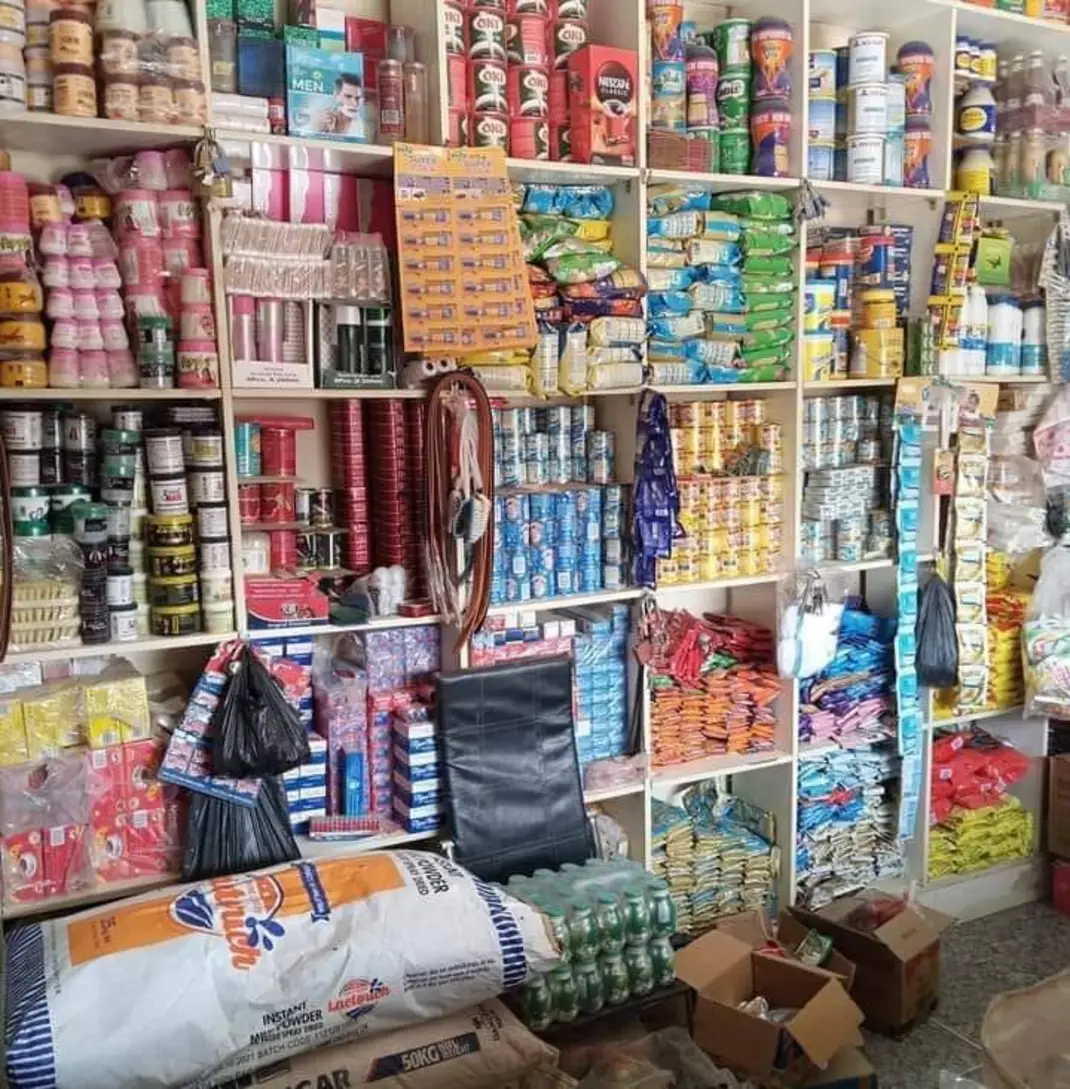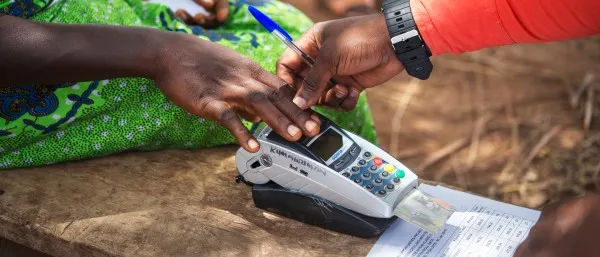The rise of digital payment systems in Nigeria has transformed the way people conduct financial transactions.
KANO FOCUS reports, In Kano, traders in the Hausawa Sabon Titi community have been at the forefront of this shift, embracing digital payment solutions to facilitate their daily business activities.
The introduction of the MoniePoint POS machine has revolutionized businesses in the area. Mr. Kabiru Yahaya, a provision store owner, noted that the cash squeeze prompted him to adopt the MoniePoint POS machine. “Most of our customers prefer to pay electronically, so we had to adapt to meet their needs,” he explained.
Similarly, Yusuf Usman, a bread and tea vendor, reported that 85% of his customers use ATM cards, mobile wallets, or phone transfers to make payments. “The MoniePoint POS machine has made it easier for me to receive payments and make payments to suppliers too,” he said.

Benefits of Inclusive Instant Payment Systems
The adoption of inclusive instant payment systems has not only improved business operations but also enhanced financial security. Mr. Usman noted that the use of digital payments has reduced the risk of robbery and burglary.
Inclusive instant payment systems offer several benefits
Increased financial inclusion: IIPS provides access to financial services for underserved populations, promoting economic growth and development. According to the Central Bank of Nigeria (CBN), the number of Nigerians with access to financial services increased from 36.8% in 2016 to 63.2% in 2020.
Improved economic efficiency: Digital payments reduce transaction costs, increase the speed of transactions, and enhance the overall efficiency of the economy. A study by McKinsey found that digital payments can increase GDP by up to 6% in some African countries.
Reduced risk of cash transactions: IIPS minimizes the risks associated with cash transactions, such as robbery, burglary, and counterfeiting. According to the Nigerian Inter-Bank Settlement System (NIBSS), the value of digital transactions in Nigeria increased by 50% in 2022, reaching ₦10.9 trillion.

Nigeria’s Cash Crunch Drives Digital Payments
Nigeria’s economy has traditionally relied heavily on cash transactions. However, the COVID-19 pandemic and subsequent lockdowns accelerated the adoption of digital banking and inclusive instant payment systems. The government’s efforts to curb excess cash circulation and promote digital payments have further driven the growth of IIPS.
According to data from the Central Bank of Nigeria (CBN), the number of active mobile money agents in Nigeria increased from 10,000 in 2019 to over 1.4 million in 2022.
Challenges and Limitations of IIPS
Despite the benefits of IIPS, there are challenges and limitations to its adoption. Some of these challenges include:
*Infrastructure constraints:* The lack of reliable internet connectivity and electricity in some areas can hinder the adoption of IIPS. According to the Nigerian Communications Commission (NCC), the country’s internet penetration rate stood at 44.6% as of 2022.
*Security concerns:* The risk of cyber attacks and data breaches can deter some individuals and businesses from adopting IIPS. According to a report by KPMG, the average cost of a data breach in Nigeria is estimated to be around ₦2.5 billion.
*Regulatory issues:* The lack of clear regulations and guidelines can create uncertainty and confusion for providers and users of IIPS. According to the Central Bank of Nigeria (CBN), the regulator is working to develop a more comprehensive regulatory framework for digital payments in Nigeria.
Expert Reaction
Dr. Tijjani Ahmed, a Senior Lecturer at the Hussaini Adamu Federal Polytechnic Kazaure and a Research Fellow at the African Center for Tax and Governance, explained that the advancement of digital technology and the introduction of digital instant payments have increased financial inclusion for small businesses.

“Prior to 2015, Nigeria had experienced low financial inclusion, with over 40% of the populace financially excluded,” he explained. Dr. Ahmed noted that this excluded demographics were not just individuals but also businesses that were in need of financial inclusion.
“Largely, the businesses in Northern Nigeria are informal, and one of the requirements in this modern age is to be banked and run a business account,” he said.
Dr. Ahmed added that with the advent of inclusive instant payment services like MoniePoint, the majority of small businesses are now able to be involved in the financial system, making and receiving payments, paying bills, and keeping track of their financial inputs and outputs.
“The Nigerian government has a target to phase out cash transactions by 2030; these digital financial technologies will help this transition, making businesses resilient because without these financial inclusive platforms and no cash, business will die,” he said.
The adoption of inclusive instant payment systems in Nigeria has transformed the way people conduct financial transactions. As the country continues to navigate its cash crunch, the growth of IIPS is expected to drive financial inclusion, improve economic efficiency, and reduce the risks associated with cash transactions. With the increasing adoption of IIPS, Nigeria is poised to make significant strides in promoting financial inclusion and driving economic growth.
As the country continues to evolve and adapt to the changing financial landscape, it is essential to address the challenges and limitations associated with IIPS to ensure its sustainable growth and development.
This story is produced under the Digital Public Infrastructure (DPI) Fellowship of the Media Foundation for West Africa (MFWA) and Co-Develop in partnership with Kano Focus Newspaper online.





